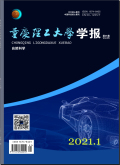重庆理工大学学报2024,Vol.38Issue(9):18-29,12.DOI:10.3969/j.issn.1674-8425(z).2024.05.003
自主车辆前馈NMPC路径跟踪控制方法研究
Research on feedforward NMPC path tracking control method for autonomous vehicles
摘要
Abstract
In high-curvature scenarios like sharp bends, the hysteresis in the vehicle ' s steering system and the linearization of the vehicle model may cause insufficient steering and steady-state errors, thereby impacting the precision of autonomous vehicle path tracking and its response speed.To address this issue, we introduce a novel path tracking framework, which triggers a feedforward control controller to generate an ideal steering angle sequence, proactively guiding the steering mechanism to approach the optimal steering angle in advance.Subsequently, a nonlinear model predictive controller incorporating a repelling target function optimally determines the best control sequence, which is then applied to the vehicle to update the ideal steering angle sequence.An autonomous vehicle experimental platform is built, and simulation verification is conducted in various scenarios.Our results indicate that, in comparison to traditional model predictive control methods that disregard hysteresis, the feedforward nonlinear model predictive controller improves the tracking accuracy and response speed.In high-curvature scenarios in particular, our framework reduces the lateral root mean square error by nearly 30%.关键词
自主车辆/转向迟滞/前馈控制/非线性模型预测控制/路径跟踪Key words
autonomous vehicles/steering hysteresis/feedforward control/nonlinear model prediction control/path tracking分类
交通工程引用本文复制引用
刘凯,李浩然,许述财,孙川,郑四发,严运兵..自主车辆前馈NMPC路径跟踪控制方法研究[J].重庆理工大学学报,2024,38(9):18-29,12.基金项目
国家重点研发计划项目(2018YFE0204302) (2018YFE0204302)
国家自然科学基金面上项目(51975428) (51975428)

